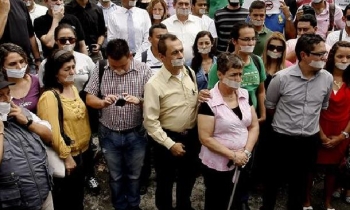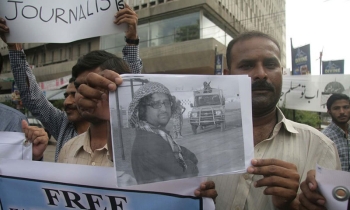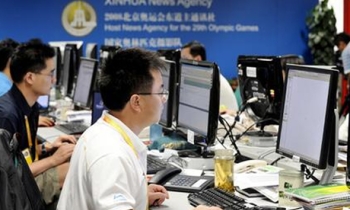News Corp's Australian arm agreed to sell its Fiji Times newspaper to a local owner, likely ending a dispute with the Fijian government over media ownership, the Wall Street Journal has reported. News Ltd said Tuesday it agreed to sell the newspaper to Motibhai & Co, after the Fijian government issued a decree that the nation's media groups be owned by Fijian companies. Terms of the sale weren't disclosed.
News Corp. also owns Dow Jones & Co., publisher of The Wall Street Journal.
In a statement, News Ltd. Chairman John Hartigan said the sale represented the best possible outcome to the staff, advertisers and readers of the Fiji Times. The chairman and chief executive officer of Motibhai & Co. is Mahendra Motibhai Patel, a Fijian businessman who previously served on the board of the Fiji Times as a nonexecutive director.
The details: [Link]
"We are reluctant sellers of the Fiji Times, but I am delighted that we have been able to find a buyer who will take over the business as a going concern, respect its heritage and invest in its future," Mr. Hartigan said. "I have known Mahendra Patel for many years. His past contribution as a director of the Fiji Times has been invaluable," Mr. Hartigan said.
Motibhai said it will ensure that the newspaper will operate as an independent unit within the company.
The deal is subject to final regulatory approval in Fiji and is expected to close on Sept. 22. Under a media decree, News Ltd. was given until Sept. 28 to divest all but a 10% stake in the Fiji Times. Amnesty International says foreign investors in Fiji have been deterred by reports of abuses and alleged efforts by the government to undermine judicial independence and muzzle the media.
Government officials deny any human-rights abuses and say their efforts are aimed at stamping out rampant corruption and restoring democracy.
The South Pacific island nation has lurched from crisis to crisis under military ruler Commodore Voreqe Bainimarama, who seized power in a 2006 coup. The U.S., Europe and Australia have condemned his government and called for national elections, but Mr. Bainimarama has resisted, saying the earliest he will return Fiji to a popular vote is 2014.
Fiji's fate matters to its neighbors in Asia and the South Pacific, a region of a dozen countries that has relied heavily on tourism in recent years as other mainstay industries such as agriculture and minerals have remained flat. Fiji's economy is larger than those of many of its island neighbors combined, and it is a primary educational center for the region, with the largest university.









